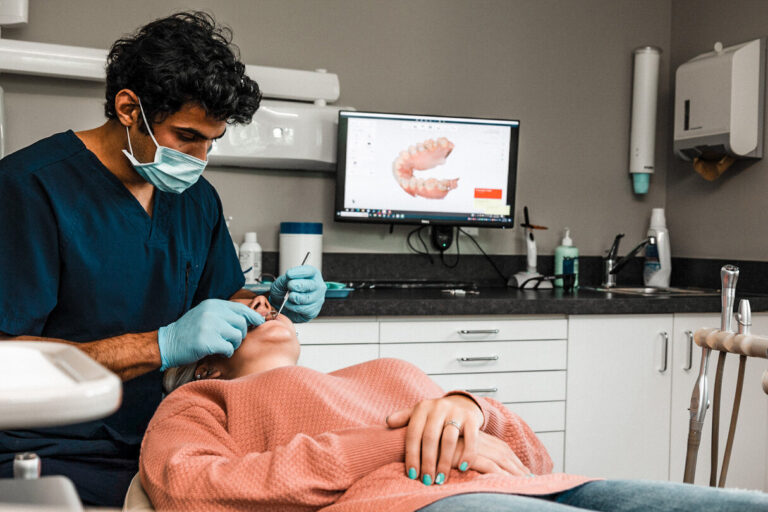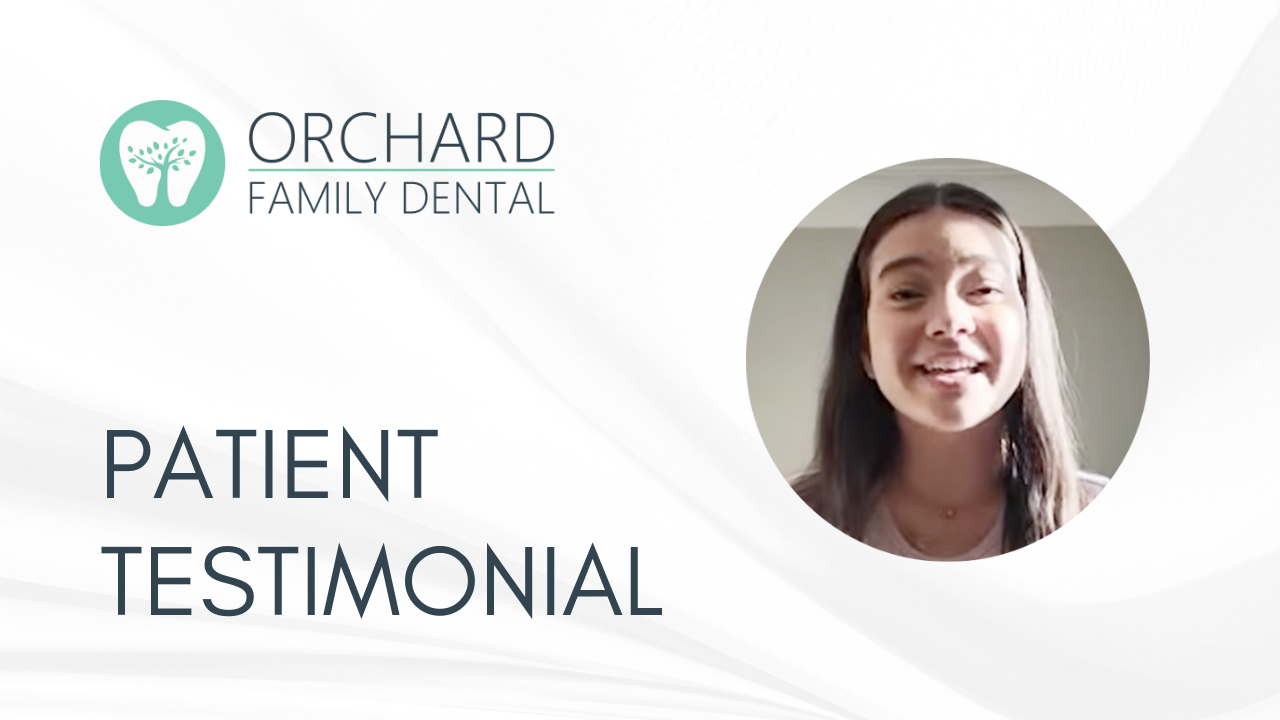
Common Wisdom Teeth Symptoms and When to Consider Removal
Orchard Family Dental - Can dentists do extractions?
Orchard Family Dental - When do wisdom teeth need to be removed?
Orchard Family Dental - How much do dental extractions cost?
Wisdom teeth, or third molars, typically emerge at the very back of the mouth between the late teens and mid-twenties. However, some individuals may develop them earlier, later, or not at all. While some wisdom teeth grow in without complications, there are several reasons why removal may be necessary.
When Should You Consider Wisdom Tooth Removal?
- Impacted or misaligned growth: Wisdom teeth may emerge at an angle or become trapped against neighbouring teeth, leading to discomfort and potential dental issues.
- Crowding and limited space: If there isn’t enough room in the mouth, wisdom teeth can cause painful crowding, shifting other teeth out of alignment.
- Difficult-to-clean areas: Poor positioning can create spaces where food and bacteria become trapped, increasing the risk of cavities and gum disease.
- Infection risk: Impacted wisdom teeth are more susceptible to infection, which can lead to swelling, pain, and other complications.
If you’re experiencing any of these symptoms, a professional evaluation can help determine whether wisdom tooth extraction is the right choice for you.
The Wisdom Tooth Removal Procedure
Wisdom tooth extraction can range from a simple procedure performed by your dentist to a more complex surgical removal by an oral surgeon. After a thorough evaluation, your dentist will determine the best approach for your specific case. You may have all four wisdom teeth removed in one session or choose a phased approach with multiple appointments.
Comprehensive Wisdom Tooth Assessment
Before scheduling the extraction, we conduct a detailed evaluation of your dental and jaw health. This includes X-rays and a careful examination to assess the positioning of your wisdom teeth and the structure of their roots. This assessment helps determine whether removal is necessary and whether a simple extraction or surgical procedure is required. Our goal is to provide clarity and ensure you understand your treatment options.
The Extraction Procedure
During your consultation, we will explain the entire process and provide preparation guidelines. Depending on your comfort level and the complexity of the procedure, we may use local anesthesia or mild to moderate sedation, such as laughing gas or a gentle prescription medication. Our team prioritizes a minimally invasive approach to ensure a smooth, comfortable experience and a quicker recovery.
Post-Extraction Care
We may recommend having a friend or family member accompany you to your appointment to drive you home and assist with your recovery. You will receive detailed aftercare instructions with tips to promote healing, reduce discomfort, and prevent complications. If any concerns arise, our team is always available to provide guidance and support throughout your recovery process.
Exploring Wisdom Tooth Removal Costs in Leduc
The cost of wisdom tooth extraction in Leduc varies depending on the complexity of the procedure and insurance coverage. For those with insurance, a simple single-tooth extraction typically results in an out-of-pocket expense of $100 to $200 or more. Without insurance, costs generally range from $200 to $600 or more per tooth for a basic extraction.
Providing an exact estimate online or over the phone is challenging since each treatment plan is customized based on individual needs. Understanding the two main types of extractions can help clarify potential costs:
Simple Tooth Extraction
This procedure involves removing fully erupted wisdom teeth that are visible in the mouth and present no complications. Performed by general dentists using local anesthesia, simple extractions are typically more affordable when the removal process is quick and straightforward.
Surgical Tooth Extraction
Surgical extractions are more complex and required for wisdom teeth that are impacted, partially erupted, have complicated root structures, or are positioned close to neighbouring teeth. Due to the specialized care, expertise, and additional resources involved, surgical extractions are priced higher than simple removals.
Since every case is unique, dental clinics cannot provide exact quotes without an in-person evaluation. To receive an accurate cost estimate and discuss treatment options tailored to your needs, scheduling a consultation with Dr. Merchant or Dr. Bogda is the best step. This allows for a comprehensive assessment and the development of a personalized treatment plan.
Contact us today
to schedule an initial consultation & exam.
Your consultation will include an examination of everything from your teeth, gums and soft tissues to the shape and condition of your bite. Generally, we want to see how your whole mouth looks and functions. Before we plan your treatment we want to know everything about the health and aesthetic of your smile, and most importantly, what you want to achieve so we can help you get there.
Frequently Asked Questions
Wisdom teeth only need to be removed if they are impacted, causing discomfort, or disrupting the alignment of your jaw and existing teeth. If they grow in without issues, extraction may not be necessary.
Modern dentistry prioritizes patient comfort, using advanced tools and techniques to minimize discomfort and promote a smooth healing process. At Orchard Family Dental, we ensure a gentle approach with detailed aftercare instructions to support a quick and comfortable recovery.
About an hour after the procedure, you can remove the gauze from your mouth and have a meal. For the first 24 hours, stick to soft foods, avoid hot items, and refrain from using straws to protect the healing site.
To minimize complications and encourage a smooth recovery:
- Avoid spitting, rinsing, nose blowing, straw use, and smoking for the first 24 hours.
- Refrain from touching the extraction site with your tongue or fingers.
- Avoid hot foods and beverages.
- Do not take aspirin, as it can interfere with blood clotting.
- Limit physical activity and avoid strenuous exercise.
Most people require about three to four days of rest or reduced activity after the procedure. While complete healing takes around two weeks, discomfort should be minimal throughout the recovery period.









